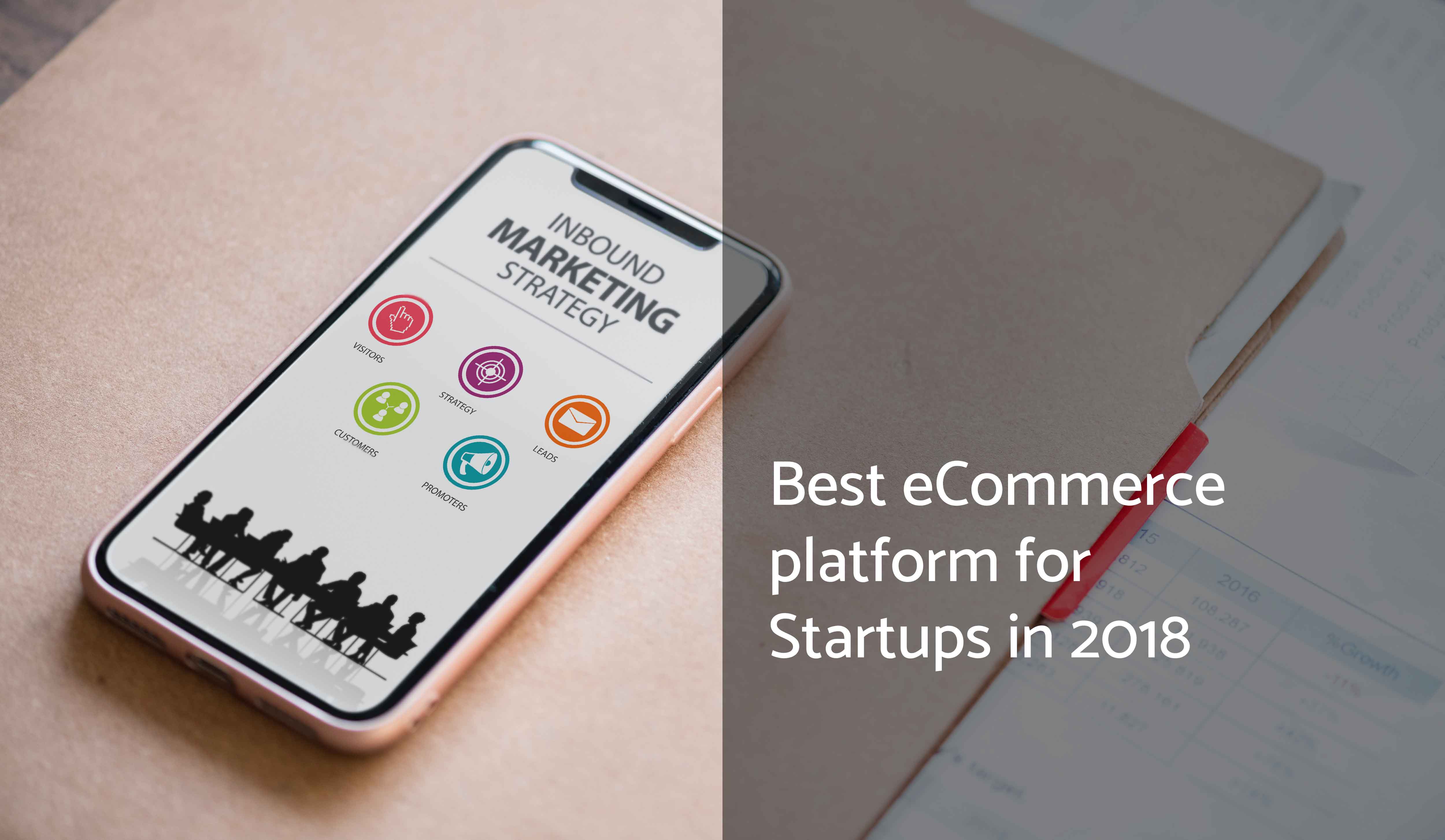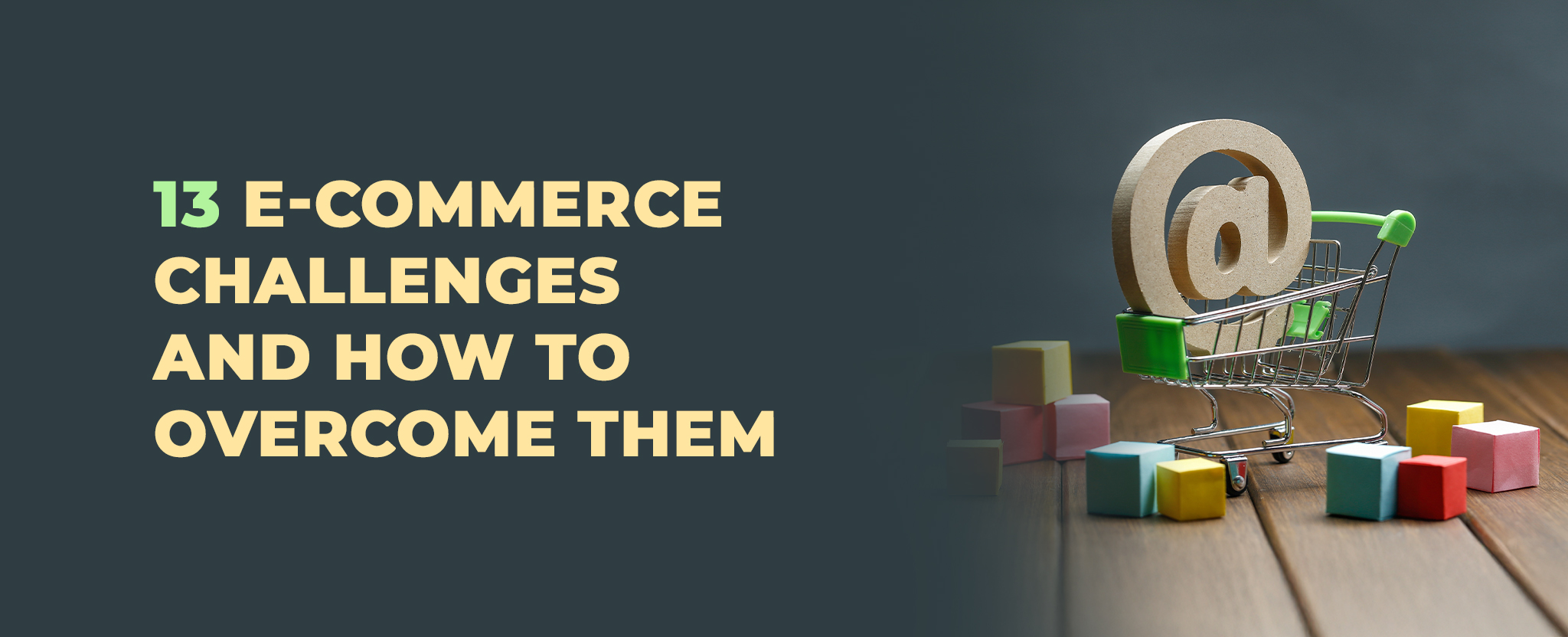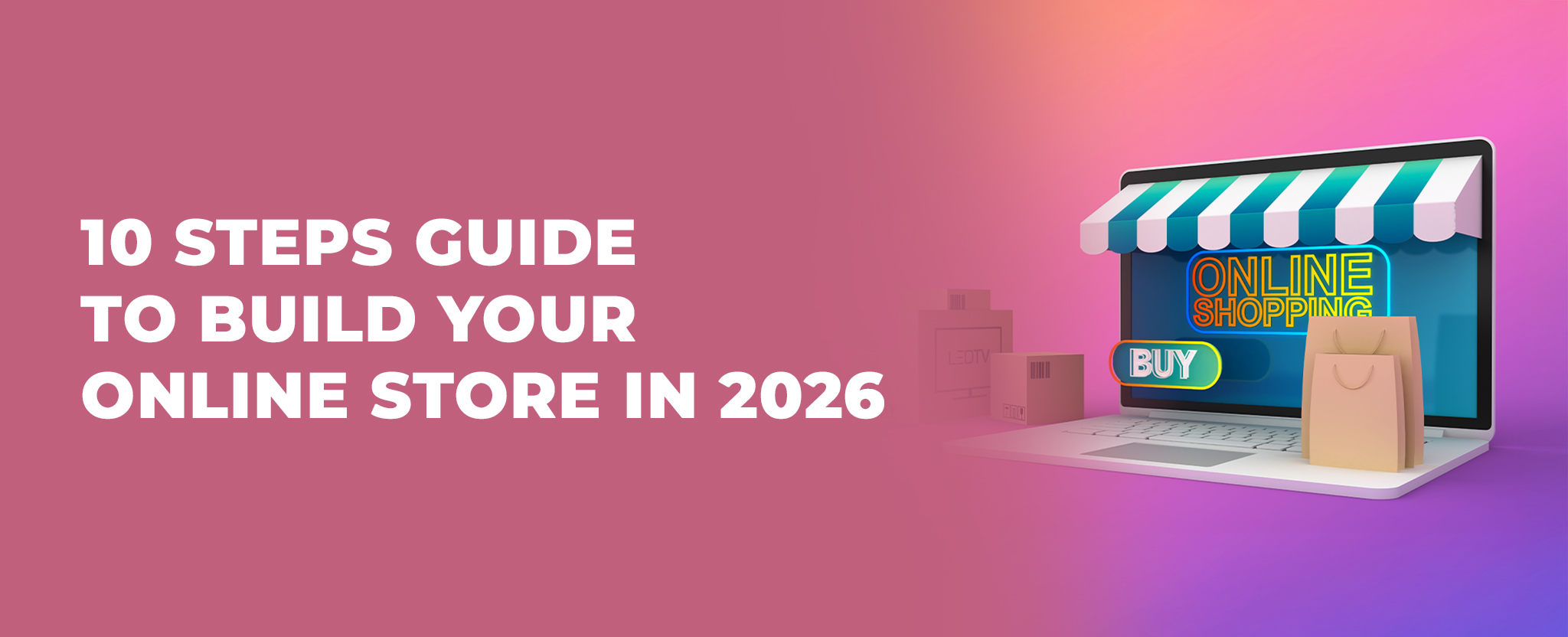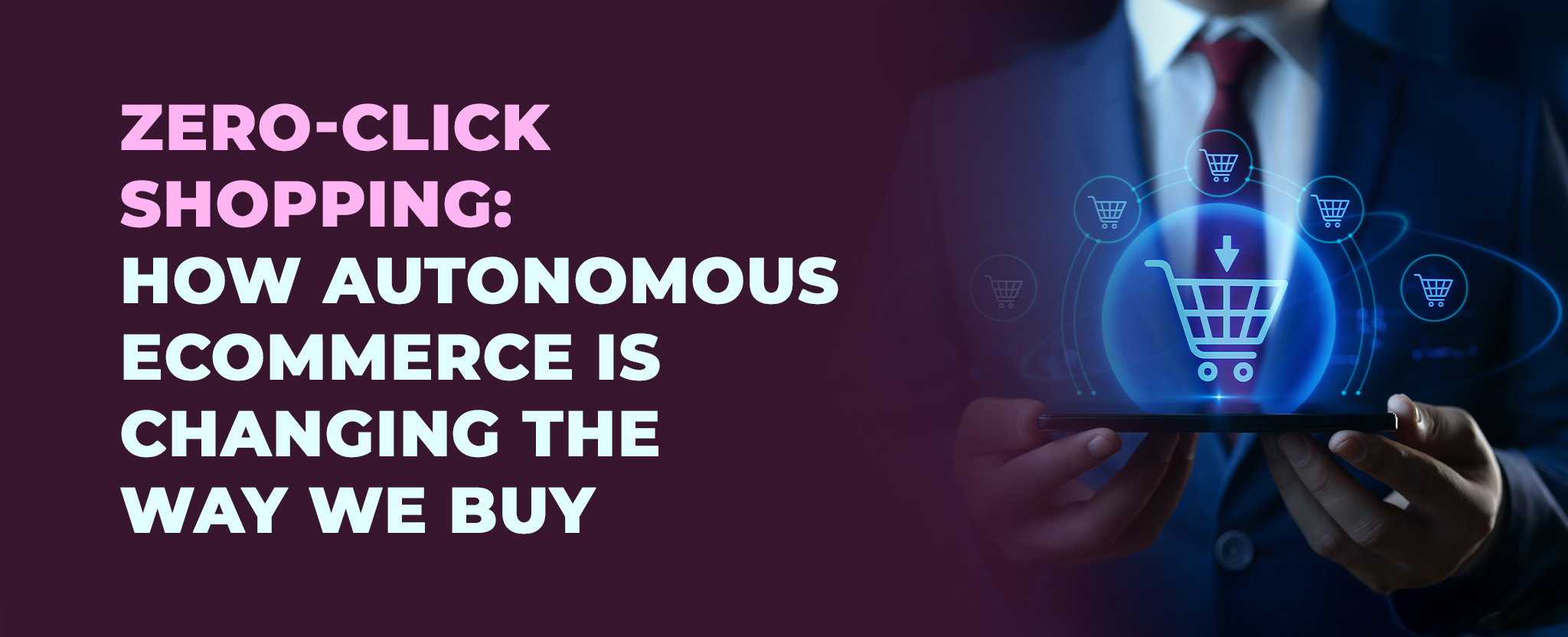Best eCommerce Platform for Startups in 2024
4 Jun 19 


The ecommerce arena is quickly expanding. Each new trends turns into an essential need for all ecommerce startups. Due to this particular reason, online retailers are having high expectation from their ecommerce solution providers. SEO optimizable, great UX design and customization functionalities still hold the highest significance, however, trends like e-commerce and social commerce are hot on the radar of every particular ecommerce startup.
Today, 60% of online product searches are made either from mobile or from social media, the platform has evolved from finding friends from social media to a platform for selling products. As per a recent research conducted by PIXLEE, it was found that 74% of online customers and 43% of purchasers are probably going to purchase products after getting to know about it from social media.
Considering these ecommerce trends and other additional requirements, we have discovered the best ecommerce platforms to empower your ecommerce business to comfort itself in 2018. Before we start, we should recognize that in the midst of this ferocious rivalry, only the correct combination of business model and ecommerce platform will succeed because, your place in the ecommerce store is depended a lot on technology with which you are equipped.
You need to pick a platform that can meet your own particular feature requirements as properly and as unique as your business model. Regardless of whether you need to launch a traditional ecommerce store or a multi-vendor marketplace, this list will spare you a portion of hard work. However, no one but only you can figure out which platform suits the best for you.
1. Shopify
Shopify has been helping online businesses over the globe with a sharp spotlight on the trending online commerce and mobile shopping. Established in 2004, Shopify has constantly stayed ahead of their competitors in ecommerce trends, with ground breaking success it attained in social shopping where your clients never leave their social media platform so as to purchase from you.
The Good:
• Surrendered truck recuperation.
• Plenty of themes, modules, and extensions.
• Mobile-friendly shopping cart and numerous other mobile oriented features accessible.
• Round the clock tech support via live chat, telephone and tutorials, with their intense Shopify discussion forum.
The Bad:
Indeed, even with every one of the upsides of Shopify specified above, there are a few drawbacks to the platform. The main among them is the extra transfer fee you’ll be obligated to pay if you don’t utilize Shopify Payment. Also, a lot of helpful and basic extensions require extra payments.
The Verdict:
A new ecommerce entrepreneur who requires a regular ecommerce solution can successfully utilize Shopify. It is simple and can enable you to start your ecommerce business rapidly.
Also Read
How e-commerce applications help your business grow
2. Magento
Launched in March 2008, Magento is an open source ecommerce website platform. Its dependability and versatility have made it a standout amongst the most mainstream ecommerce business platform currently available in the market.
The Good:
• Open source and boundless customization alternatives.
• Convenience and Manageability.
• More than 9000 plugins and extensions for adaptability.
• Free extensions for social media.
The Bad:
Managing Magento isn’t for everyone, particularly if the store proprietor isn’t a developer, or doesn’t have a team of software engineers working for him. And after that, there’s the cost; the base version is free, however getting an enterprise version means you’ll have to spend at any rate $20,000/year.
The Verdict:
For Enterprise level online stores with a huge stack of products, Magento is the correct decision. Not sustainable for SMBs because of its sophisticated store setup, cost and very specialized management requirements.
3. YoKart
Specially developed for new businesses and SMBs, YoKart is a turnkey and feature-rich online business solution to create multi-vendor stores, for example, Amazon, eBay, and Etsy. While numerous other ecommerce platforms do offer a multi-vendor rendition, YoKart has practical experience in this specific field. YoKart, with its most recent update (YoKart V8) now packs a considerably greater punch.
The Good:
• A readymade multi-vendor marketplace solution.
• The marketplace owner gets the source code of the site alongside a license for a lifetime.
• Mobile friendly platform and devoted applications for Android and Apple devices.
• Free technical support for a year.
• Multilingual and multi-currency.
The Bad:
YoKart has two or three drawbacks, however. Given the strong structure, altering YoKart will require a developer with intense knowledge in PHP. Additionally, it’s not open source like Magento. The Startup and GoQuick Packages offer default themes. Also, unlike Magento, YoKart is essentially centered around SMB, which implies the required features are already available in the standard packages; for huge scale enterprises, customization would be a must do.
The Verdict:
SMBs can utilize YoKart to its maximum capacity. The startup package is the most affordable at $250 and offers hosted solution for about a year. This is the best technique to test the practicality of your business model. When you are certain of your business, you can without much of a stretch upgrade your version; GoQuick, GoCustom Lite, and GoCustom.
4. BigCommerce
Since its commencement, BigCommerce has in excess of 55,000 online stores to its credit and is praised as a standout amongst the most prominent ecommerce software providers. For ecommerce store owners who lack basic coding skills, the immense list of features come as extremely convenient.
The Good:
• The enormous number of built-in features including (however not restricted to) pamphlets, coupons, shipping and analytics.
• No transaction fee.
• Responsive themes (paid and free) and consistent user experience on both mobile and desktop.
• Simple store integration with Facebook, eBay, Google shopping etc.
The Bad:
For those who wish to launch a multi-vendor store may find BigCommerce lacking some of the support other ecommerce platforms offer with more coordinated market place models. Another worry with BigCommerce might be the absence of free themes. With just 7 free themes, BigCommerce lags behind other ecommerce platforms, given the way that majority of them offer more than 20 free themes.
The Verdict:
BigCommerce is a perfect answer for ecommerce entrepreneurs who need an online store without coding issues, incorporating plugins etc. if you can manage with the absence of free themes, then BigCommerce will be the best ecommerce platform solution.
5. WooCommerce
A free WordPress module, WooCommerce is a name that needs no introduction in the world of ecommerce. Whether you’re setting up a WooCommerce store for your small business or a larger enterprise, it comes with a secure payment gateway and a shopping cart that works really well. WooCommerce needs an extra plugin to begin a multi-vendor online store.
The Good:
• Easily manageable admin panel.
• Unlimited product categories.
• Secure payment gateway.
The Bad:
Installing WooCommerce is free, yet incorporating the shopping cart with the system requires extra payment. The most concerning issue with WooCommerce is the absence of adaptability; as your business develops and you get more dealers, products and clients on your database, WooCommerce starts to slow down.
The Verdict:
WooCommerce is a reasonable choice if you need to stick to WordPress sites and don’t need a substantial, high-volume store.
Final Thoughts:
An ecommerce mobile app development platform isn’t a “one size fits all” solution that will work for everyone. All the web-based business platforms talked about in this article are developed for various types of business requirements. Diverse business models and scale of activities call for different ecommerce platforms. Pick wisely, and watch your business evolve.
- Agentic AI1
- Android Development3
- Artificial Intelligence38
- Autopay1
- Classified App3
- Custom App Development5
- Digital Transformation12
- Doctor Appointment Booking App14
- Dropshipping1
- Ecommerce Apps40
- Education Apps2
- Fintech-Apps38
- Fitness App4
- Flutter4
- Flutter Apps20
- Food Delivery App5
- Grocery App Development1
- Grocery Apps3
- Health Care10
- IoT2
- Loyalty Programs11
- Matrimony Apps1
- Microsoft1
- Mobile App Maintenance2
- Mobile Apps132
- On Demand Marketplace1
- Product Engineering6
- Progressive Web Apps1
- React Native Apps2
- Saas Application2
- Shopify9
- Software Development3
- Taxi Booking Apps7
- Truck Booking App5
- UI UX Design8
- Uncategorized7
- Web App Development1



















Comments